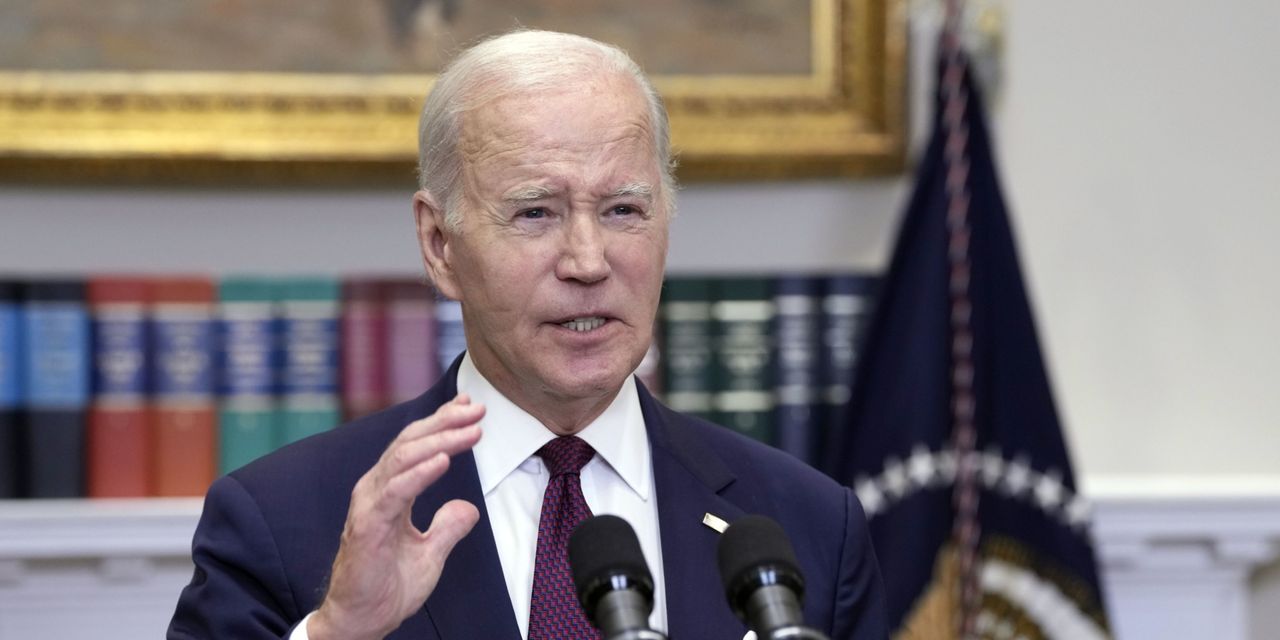About the author: Desmond Lachman is a senior fellow at the American Enterprise Institute. He was a deputy director in the International Monetary Fund’s Policy Development and Review Department and the chief emerging market economic strategist at Salomon Smith Barney.
It would be a gross understatement to say that President Biden is taking a great political risk in making Bidenomics a primary plank of his re-election campaign. This is not simply because a significant majority of the country’s electorate has a low opinion of his economic-policy management. Rather, it is because the chickens of his excessive public-spending spree might come home to roost before the November 2024 election.
To be sure, Bidenomics has helped deliver a strong labor market, a welcome recovery from the Covid recession, and a much-needed increase in infrastructure spending. Unemployment is at close to a post-World War II low, and wages, especially for those at the lower end of the income scale, have been rising satisfactorily. But there’s a fly in the ointment. These gains have come at a considerable cost to the country’s longer-run economic outlook. On Biden’s watch, inflation reached a multidecade high, the country’s public debt has continued to soar, and the further erosion in the country’s external finances has raised serious questions as to the dollar’s future as the world’s dominant international reserve currency.
The major flaw in Bidenomics has been what Larry Summers, President Obama’s Treasury Secretary, has described as the “least responsible” budget policy in the past four decades. Specifically, in March 2021, when the economy was already well on its way to recovery from the Covid recession, Biden chose to sign the $1.9 trillion American Rescue Plan. That came on top of the previous year’s $3 trillion bipartisan budget stimulus measures. As a result, the U.S. economy received by far its largest peacetime budget stimulus on record, amounting to more than a staggering 20% of the country’s gross domestic product. Not satisfied with this degree of public overspending, President Biden added the so-called Inflation Reduction Act to the pile last year.
Unsurprisingly, this amount of budget pump-priming, coupled with a Federal Reserve that kept monetary policy too easy for too long, led to economic overheating and to a surge in headline inflation to 9.1% by June 2022. That in turn has forced the Fed to slam on the monetary policy brakes to regain inflation control. Over the past year, the Fed has increased interest rates at the fastest pace since the early 1980s and it has allowed an unusual contraction in the money supply.
If Milton Friedman is right that monetary policy operates with long and variable lags of between 12 and 18 months, the Fed’s recent policy tightening could spell real economic trouble for Biden’s re-election hopes. It could mean that the U.S. economy will experience an economic recession just as the election campaign is in full swing. The risks are real: Higher interest rates were behind the sudden problems at regional banks, including Silicon Valley Bank and First Republic Bank. In addition, Fed Chair Jerome Powell is now acknowledging that high interest rates could lead to serious problems in the real commercial sector space, which is suffering from low occupancy rates in a post-Covid world.
The country’s public finances are already strained. Sustained high interest rates and a possible recession would add to interest rate expenditures and reduce the tax base. They would also weigh on the stock market. This could make it heavy going for Biden on the economic front. He will have to somehow explain that he was not responsible for multi-decade-high inflation, an economic recession, an unsustainable public debt, and a poorly performing stock market under his watch. The good news for Biden is that last year’s midterm election taught us that James Carville, President Clinton’s former political advisor, is mistaken in thinking that when it comes to elections it is always the economy, stupid. With such a weak economic hand to play, perhaps Biden would be well-advised in his re-election bid to divert the public’s attention to the non-economic issues facing the country.
Guest commentaries like this one are written by authors outside the Barron’s and MarketWatch newsroom. They reflect the perspective and opinions of the authors. Submit commentary proposals and other feedback to [email protected].
Read the full article here


